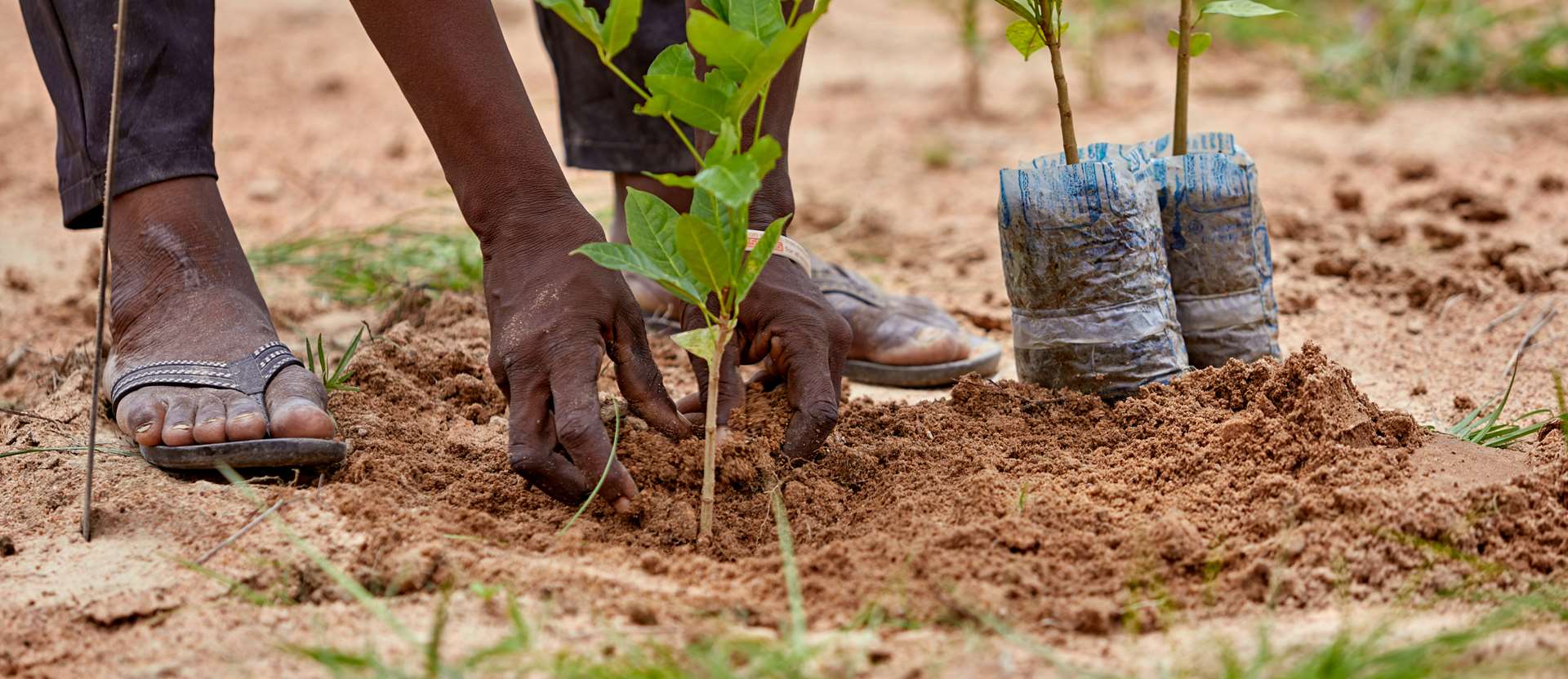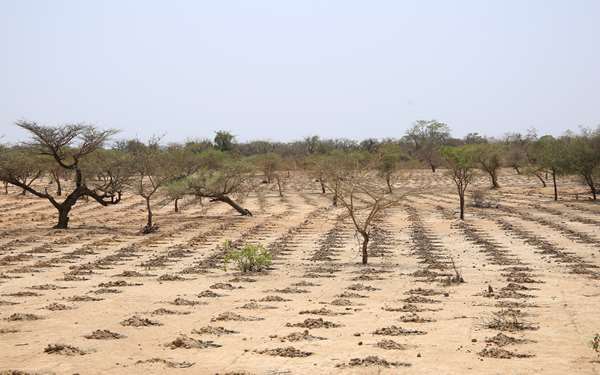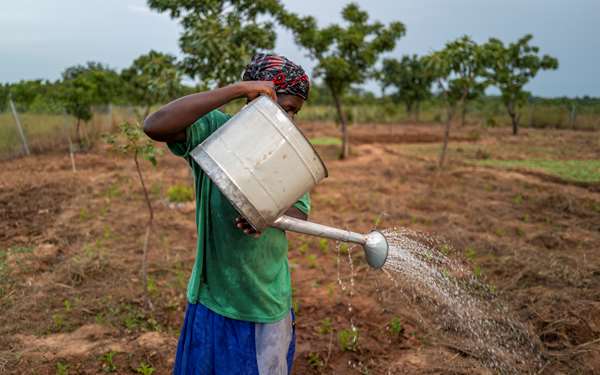
How can compost help restore land in Africa's Sahel?
Celebrating National Compost Week 14th – 20th March 15th March 2022Did you know that compost can be used as a nature-based solution to the climate crisis?
In this blog, to celebrate National Compost Week, we take a deep dive into the world of compost, to find out how using compost when planting trees can benefit soil, conserve water, and help trees live long, healthy lives in difficult conditions.
In the UK, composting is a great way to help keep gardens and veg patches healthy and reduce food waste. However, in the dryland Sahel region of Africa, which is bearing the brunt of the climate crisis, it can mean so much more. Compost is offering communities a real lifeline, providing a vital means of conserving water and restoring degraded land – an important part of incredible projects like the African-led initiative, The Great Green Wall.
What is composting?
Composting is the natural process of turning every day, natural waste products – like food and manure - into nutrient-rich plant feed called compost. The organic waste is ‘piled, mixed and moistened to undergo 'thermophilic' (high heat) decomposition’, creating a natural product which boosts the fertility and water-holding capability of soil.
Compost for the planet
Compost can help to mitigate the impacts of the climate crisis by helping trees to thrive and survive in difficult circumstances. It can also help to reduce the impacts of climate change by increasing the amount of carbon that can be 'sequestered' (captured) in the soil.
Compost is an entirely natural way of fertilising degraded soil and a fantastic alternative to artificial fertilisers, which are costly, energy intensive to produce, and can be harmful to the environment. As such, Tree Aid has been using compost as part of our forest restoration efforts in the communities we are partnered with.
The Zai's the limit!
Tree Aid projects have been implementing sustainable tree planting methods across the Sahel. One such method is the construction of zai pits: ‘holes filled with compost that conserve water and nutrients.’
Zai pits were invented by Yacouba Sawadogo, also known as ‘The Man Who Stopped The Desert’. Tree Aid is proud to have worked with Yacouba, supporting him to create a local land ownership charter for his land, to help him project it and teach others about land management techniques. We also worked closely with Yacouba to create a forest management plan in Burkina Faso, which incorporates the use of his zai pit technique.
The zai pit technique involves digging multiple holes in the earth, which are filled with manure. After the first rain arrives, seeds are planted in the pits. The way these pits are constructed allows the soil to retain more water and infuse the soil with nutrients.


Composting for climate adaptation in rural Burkina Faso
45 year old father-of-4 Moumouni Sawadogo is a Tree Aid project participant from Korsimoro, a village in the Centre-Nord region of Burkina Faso. Moumouni takes part in reforestation efforts for his village by planting trees. Since joining Tree Aid in 2021, he has been learning about the benefits of compost. He told us:
"Through the trainings we had from Tree Aid, we know that when we plant a tree, manure must applied...I also use this technique for food crops to help us have good yields in our crops."
Using compost in the soil has greatly aided the reforestation efforts in Moumouni’s village, which not only helps to combat the climate crisis, but also improves food security in the area. Moumouni told us that the knowledge gained about composting techniques from this project has given his village ‘momentum’.
Building fertility and strengthening forests in Mali
In 2020, Tree Aid worked with communities in Mali to help strengthen the Duwa and Sutebwo forests in the Segou region of the country. These Malian forests have suffered due to land degradation in the area, as a result of the climate crisis. Thriving trees and improved natural resource management can have a life changing impacting for the communities involved, boosting household incomes and increasing dietary diversity.
As a result of the project, soil and water conservation restored 8,300 hectares of degraded forest land, through the use of stone bunds to retain water and zai pits to improve soil fertility. Stone bunds are another form of water conservation, comprising structures of rock fragments, constructed to form a barrier that slows water run-off. This prevents the soil from losing its nutrients, whilst zai pits have allowed the trees in these areas to flourish by rejuvenating the soil.


Composting for a greener future
Here at Tree Aid, we are continuing to see the benefits of compost in vital reforestation and last restoration efforts across Africa. Compost is a fantastic nature-based solution to the climate crisis - organic, readily available, and highly successful!
If you’ve enjoyed this blog, spread the love by sharing on social media, or click the link below to support us today.






